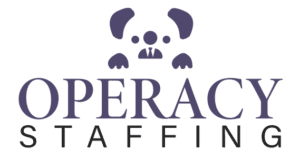
Introduction
As businesses adapt to the changing dynamics of the modern workplace, remote staffing has emerged as a viable and valuable strategy. Beyond it flexibility and convenience, remote work arrangements offer organisations a substantial return on investment (ROI).
This article explores the various dimensions of ROI in business case for remote staffing, including cost savings, productivity gains, talent advantages, and the importance of measuring ROI. By understanding the true value of remote work and effectively measuring its impact on the company itself, businesses can maximise their returns on investment and thrive in today's evolving work landscape.
Remote staffing not only provides a solution for businesses seeking cost effective and efficient operations, but it also aligns with the expectations and preferences of the modern workforce. With advancements in technology and the growing emphasis on work-life balance, employees increasingly value the flexibility and autonomy that remote work offers.
Organisations that embrace remote staffing can attract and retain top talent, boosting employee satisfaction, engagement, and loyalty. Moreover, remote work arrangements contribute to a diverse and inclusive workforce by breaking down geographical barriers and providing opportunities for individuals from different backgrounds and locations to contribute their skills and perspectives.
Cost Savings
Remote staffing enables businesses to achieve significant cost savings in various areas. By embracing remote work arrangements, companies can reduce or eliminate expenses associated with physical office spaces, such as rent, utilities, and other maintenance costs.
This translates into substantial cost savings that can be redirected towards strategic initiatives, or other investments such as product development, marketing campaigns, or employee training.
Furthermore, remote staffing reduces the need for additional office equipment and supplies, resulting in further cost reductions. With a smaller physical footprint, businesses can optimise their operational expenses more money, and allocate resources more efficiently.
In addition to the net benefit of direct cost savings, remote staffing also contributes to indirect savings. With remote work arrangements, organisations can minimise employee turnover and associated costs. Research has shown that remote employees have higher job satisfaction and are more likely to stay with a company for a longer period. By reducing turnover rates, businesses can save on recruitment, onboarding, and training expenses.
Moreover, remote work arrangements can lead to lower employee absenteeism and sick leave, as employees have greater flexibility to manage their personal and professional responsibilities.
Overall, the total value and cost of savings achieved through remote staffing have a significant impact on an organization's financial health, profitability ratios and sustainability.
Productivity Gains
Remote staffing not only offers cost savings but also presents opportunities for substantial productivity gains. Without the distractions and noise of a traditional office environment, remote workers often experience increased focus and concentration. They can customise their work environment to suit their preferences and eliminate interruptions, resulting in higher-quality work output.
Additionally, remote work enables employees to create a work schedule that aligns with their natural productivity peaks, maximising their efficiency. This flexibility allows individuals to optimise their workflow and deliver their best work during their most productive hours, leading to improved performance and output.
Remote work arrangements also eliminate the time-consuming and stressful commute that employees face in traditional office settings. The time saved from commuting can be redirected towards work-related tasks, resulting in more productive hours each day.
Furthermore, remote staffing empowers employees to strike a better work-life balance, reducing burnout and increasing overall job satisfaction. When employees have greater control over their work environment and schedule, they are more likely to feel motivated and engaged, leading to higher product levels. By capitalising on the inherent advantages of remote work, businesses can unlock their employees' full potential and achieve significant productivity gains.
Talent Advantages
Remote staffing opens up a world of talent advantages for organisations, allowing them to access highly skilled professionals regardless of geographic limitations and initial cost. By embracing remote work arrangements, businesses can tap into a global talent pool and overcome the constraints of local talent availability investment cost.
This provides organisations with the opportunity to attract and hire top talent from different industries that may not be accessible in their immediate vicinity. The ability to source talent from anywhere in the world brings diverse perspectives, expertise, and creativity to the organization, fostering innovation and driving growth.
Moreover, remote work arrangements often appeal to talented professionals seeking a better work-life balance. The flexibility offered by remote work allows individuals to design their work schedules around their personal commitments, leading to increased job satisfaction and reduced turnover rates.
By providing employees with the option to work remotely, businesses can position themselves as attractive employers and retain valuable talent. Retention of experienced and skilled employees not only saves costs associated with recruitment and training but also ensures organisational continuity and stability.
The talent advantages and extra financial value of remote staffing give organisations a competitive edge in attracting top performers and building a high-performing workforce.
Measuring Remote Staffing ROI
Measuring the return on investment (ROI) of remote staffing requires the establishment of key performance indicators (KPIs) that align the performance measure the investment's cost with the organization's objectives. These KP may include metrics such as cost savings, employee productivity levels, customer satisfaction, and employee retention rates.
By tracking and analysing these metrics regularly, businesses can assess the impact of remote staffing on their overall performance and identify areas for improvement. Cost savings can be measured by comparing expenses associated with physical office spaces before and after implementing remote work arrangements. This includes direct costs like rent and utilities, as well as indirect costs such as office supplies and maintenance.
Productivity gains can be evaluated through quantitative measures like output per employee, time spent on tasks, and project completion rates. Qualitative feedback from employees and managers on other projects can also provide insights into the intangible benefits of remote work, such as improved collaboration, work-life balance, and employee morale.
Additionally, organisations can assess the impact of remote staffing on customer satisfaction by tracking customer feedback and satisfaction ratings. A wellimplemented remote staffing strategy can lead to improved customer service, faster response times, and increased customer loyalty. Employee retention rates can be measured by comparing turnover rates before and after the implementation of remote work arrangements. By monitoring these KPIs and analysing the data, businesses can make data-driven decisions to optimise their remote staffing, calculate the total ROI on one investment or different investments, and continuously improve their remote work practices.
In conclusion, understanding the ROI of remote staffing is crucial for organisations seeking to maximise their returns on investments in the modern workplace. Remote work arrangements offer significant cost savings, productivity gains, and talent advantages.
By embracing current value of remote staffing and implementing effective measurement strategies, businesses can harness the full potential of this flexible work model. Remote staffing has become a strategic imperative for organisations looking to thrive in a dynamic and interconnected world, enabling them to adapt to the evolving work landscape and drive sustainable growth.
Enhanced Work-Life Balance
Remote staffing brings forth the advantage of enhanced work-life balance for employees. Traditional office setups often require rigid schedules and long hours spent commuting, leaving employees with limited time for personal activities and family commitments.
Remote work arrangements offer the flexibility for individuals to integrate their work responsibilities with their personal lives better, resulting in more profit and a healthier work-life balance. With remote staffing, employees have the freedom to create a work environment that suits their preferences and needs. They can work from the comfort of their homes, co-working spaces, or even while travelling, enabling them to manage their personal better and professional commitments.
This flexibility allows individuals to engage in activities that promote their overall well-being, such as exercise, spending time with family, pursuing hobbies, or attending personal appointments. By achieving a better work-life balance, employees experience reduced stress levels, increased job satisfaction, and improved overall mental and physical health.
Conclusion
Understanding the ROI of remote staffing and maximising its potential is critical for organisations navigating the complexities of the modern workplace. Remote work arrangements offer numerous benefits to the business owner, including cost savings, productivity gains, and access to a global talent pool.
By measuring the impact of remote staffing through key performance indicators and qualitative feedback, businesses can gain valuable insights into its effectiveness and make informed decisions to optimise their investment's ROI further.
In the ever-evolving work landscape, remote staffing has become more than just a response to external factors; it is now a strategic imperative for businesses looking to thrive. By harnessing the advantages of remote work and continuously adapting their practices, organisations can not only achieve financial savings but also enhance productivity, attract top talent, and cultivate a high-performing workforce.
Remote staffing allows businesses to create a dynamic, flexible, and inclusive work environment that empowers employees and drives sustainable growth. Embracing remote work and maximising its ROI and financial return on investment is a powerful way for organisations to stay ahead in the modern workplace and succeed in an interconnected world.
